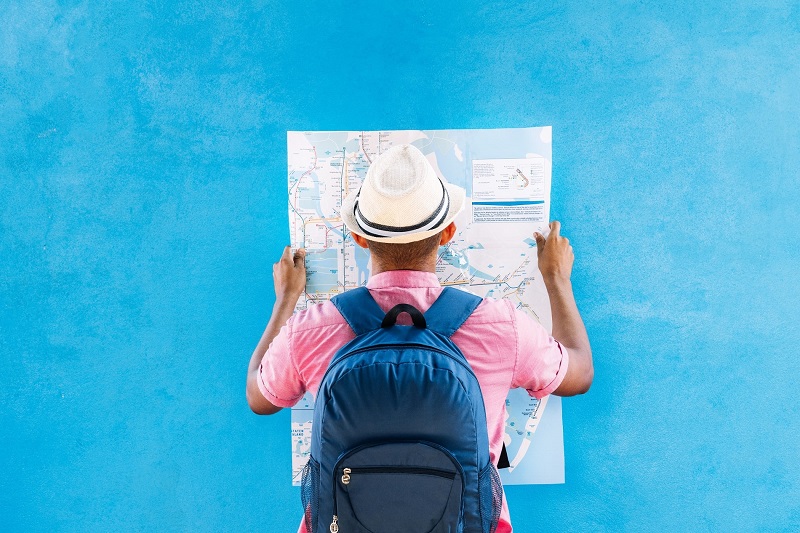Traveling through Europe is an adventure filled with breathtaking scenery, rich history, and vibrant cultures. Whether you’re exploring the cobblestone streets of Paris or hiking the Swiss Alps, it’s easy to get caught up in the excitement. But while Europe is generally safe, it’s important to stay vigilant and take precautions to ensure a smooth and enjoyable trip.
Understanding Local Laws And Customs
Researching local laws and customs is crucial when traveling in Europe. Each country has unique regulations that visitors must follow. Not knowing these laws can lead to unexpected fines or legal issues.
Learn About Drinking Laws
In many European countries, the legal drinking age is lower than in the US, usually 18. However, some countries like Germany and Austria allow beer and wine consumption at age 16. In contrast, public intoxication can be heavily penalized in places like Norway. Check local regulations to understand the specifics.
Respect Dress Codes
Some European sites, especially religious ones like Italy’s St. Peter’s Basilica or Spain’s Sagrada Familia, enforce strict dress codes. Shoulders and knees must be covered in these locations. Always carry a scarf or shawl to throw over your shoulders if you’re unsure.
Understand Traffic Rules
European traffic rules can differ significantly. For example, in many countries, pedestrians have the right of way on crosswalks, but in others like Italy, this might not be strictly followed. In Germany, the Autobahn has sections with no speed limit, while countries like Switzerland impose hefty fines for speeding.
Be Aware of Quiet Hours
Several European countries, particularly Germany and Switzerland, enforce quiet hours during lunch and night. Making loud noises or playing music during these times can attract fines. Familiarize yourself with local quiet hours to avoid disturbances and potential penalties.
Mind Your Manners
Different cultures have varying social etiquette. In France, greeting with “Bonjour” before asking a question is a common courtesy. In Spain, a friendly kiss on the cheeks is a standard greeting. Observe locals and follow suit to show respect and blend in.
Currency and Payment Habits
While many places in Europe accept credit cards, some small businesses, especially in Germany and Italy, prefer cash. Always carry some local currency. Understand the tipping practices; in Italy, service charges are often included, while in Denmark, tipping isn’t mandatory but appreciated.
Know Emergency Numbers
Each European country has its emergency contact numbers. However, 112 is the universal emergency number throughout Europe. Memorize it for quick access. Some countries may have specific numbers for police, fire, and ambulance services, so it’s helpful to know them.
Cultural Sensitivities
Certain actions may be considered offensive in some cultures. For instance, making direct eye contact in public transport in some Nordic countries might be seen as intrusive. Studying cultural norms before visiting can help in avoiding any unintentional offense.
Understanding and respecting local laws and customs enhance safety and enrich the travel experience.
Travel Documentation And Health Precautions
Traveling through Europe is an exciting adventure. To ensure it’s a safe one, every traveler needs to take certain steps regarding travel documentation and health precautions.
Passport And Visa Requirements
I’ve learned that checking passport and visa requirements before traveling is crucial. Each country in Europe has specific entry rules. For instance, while passport validity should be at least six months beyond your stay, some countries only require three. Whether you’re visiting the Schengen Area or non-Schengen countries, understanding their entry requirements can save you from last-minute hassles.
The Schengen Area allows for passport-free travel across 27 European countries for short stays, up to 90 days. However, countries like the UK, Ireland, and Russia have their own distinct visa policies. For example, traveling to the UK often necessitates a visa for non-EU citizens, while Ireland might require an Electronic Travel Authorization (ETA) for short visits starting in 2025.
Applying for visas early is advisable. Visa processing times vary, but allocating a month to handle paperwork ensures no delays spoil your plans. Always keep digital and physical copies of all documents, including passport and visa, in case of loss or theft.
Health Insurance And Vaccinations
Having the right health insurance can make all the difference during your travels. Travel insurance typically covers medical emergencies, trip cancellations, and theft; health insurance specifically addresses medical risks. Purchasing an insurance plan that includes not just in-country medical coverage but also emergency evacuation is a smart move.
Regarding vaccinations, it’s essential to check health advisories for each country you’re planning to visit. Some European countries require vaccinations for diseases such as measles or hepatitis. The vaccination for measles, mumps, and rubella (MMR) is often recommended, given outbreaks in some regions.
The COVID-19 pandemic has added an extra layer of health precautions. Certain countries demand proof of vaccination or a negative COVID-19 test upon entry. Keeping an official and digital copy of your vaccination certificate and adhering to local health guidelines minimizes risk.
Safe Transportation Options
Public Transportation Safety
Using public transportation in Europe is generally safe and efficient. Trains, buses, and trams provide a convenient way to explore cities and connect regions. To enhance safety, be mindful of your belongings, especially in crowded areas where pickpockets may operate. Keep your wallet, phone, and passport securely zipped in a front-facing pocket or an anti-theft bag.
Validate tickets to avoid fines, as many countries have strict ticketing rules. For instance, in Germany, ticket inspectors conduct random checks on trains and buses. When in doubt, ask a local or consult signage for guidance. Familiarize yourself with the routes beforehand to avoid confusion and reduce stress. Many transit apps offer real-time updates and route maps, making navigation easier.
If you travel late at night, wait in well-lit areas and near busy entrances. Some cities, like Paris and London, offer night buses for late-hour travels; use these services for enhanced safety. Trust your intuition, and if you feel uncomfortable, move to a more populous area or seek assistance from transit staff.
Renting A Car And Driving Tips
Renting a car offers flexibility, allowing exploration of Europe’s scenic routes at your own pace. Before renting, understand the local driving laws and ensure you have an international driving permit if required. Many countries require this along with your home country license.
Choose a reputable rental company to avoid hidden fees or subpar vehicles. Inspect the car thoroughly before leaving the lot, noting any existing damage. Verify that insurance coverage aligns with local requirements and your personal needs.
Europe’s roads vary from wide motorways to narrow, winding streets. In countries like Italy, traffic can be chaotic, and parking space scarce. Observe speed limits and always give way to pedestrians to avoid fines. Knowing local traffic signs and signals, which can differ significantly from those in your home country, aids navigation.
Consider installing a GPS or using a reliable map app to avoid getting lost. Toll roads are common in countries like France and Spain; carry enough local currency or an accepted credit card to cover these costs. If driving in winter, check requirements for snow tires or chains in mountainous regions.
Accommodation Safety
Staying safe in your accommodation is crucial during your European travels. Taking specific precautions can enhance your security whether you stay in hotels or vacation rentals.
Hotel Security Measures
Selecting a hotel with good security features is vital. Check if the hotel has 24-hour front desk service, secure access to rooms, and CCTV coverage. When you arrive at your room, ensure the door has a functioning deadbolt and peephole.
Use the room safe for valuables like passports and extra cash. Alternatively, leave them in the hotel’s main safe. Always be cautious with room keys or card access. Avoid sharing your room number publicly and never leave your door open, even if you’re stepping out briefly.
Familiarize yourself with emergency exits and escape routes. In the event of an emergency, knowing the quickest way out of the building is essential. If possible, choose a room between the third and sixth floors, as these are less accessible to burglars but within reach of most fire department ladders.
Safe Vacation Rentals
Vacation rentals demand a different approach to safety. Always read reviews and ensure the listing is verified on reputable platforms. Directly contact the host and confirm the booking details to avoid any scams.
Inspect the property on arrival. Ensure all doors and windows lock securely. If there’s a safe, store your valuables there. If not, hide important items out of plain sight. Get acquainted with emergency contact numbers and local amenities like hospitals and police stations.
Communicate your travel plans with someone back home, including your rental’s address and host contact information. Avoid sharing your accommodation details on social media to protect your privacy.
Using these accommodation safety tips, you can confidently enjoy your European adventure knowing you’ve taken steps to stay safe.
Personal Safety Tips
European travel is exciting, but staying safe is crucial. Here are essential tips to keep you safe on your journey.
Protecting Your Belongings
Pickpocketing is common in crowded areas. I keep my valuables in a money belt or under-clothing pouch instead of a backpack. Regular wallets and handbags attract thieves. Leaving expensive jewelry at home and using discreet accessories helps reduce risk. I split my cash and cards between different locations on my body.
Using anti-theft accessories like bags and locks can also help secure my belongings. I never leave my bags unattended at cafes or attractions. When staying in hotels or rentals, I use the room safe. In public transport, I place my bag on my lap or hold it close to my body.
I take care when using ATMs. I choose machines inside banks or well-lit areas, avoiding isolated spots. I cover the keypad when entering my PIN. If a card gets stuck or captured, I report it immediately.
Navigating Cities and Tourist Areas
I research local transportation options before exploring a new city. Using official taxis or reputable ride-sharing apps avoids unlicensed drivers. I stay aware of my surroundings, watching for suspicious activity.
When visiting landmarks, I keep a map or navigation app handy. This helps me avoid wandering into unsafe neighborhoods. If unsure, I ask locals or hotel staff for safe routes. I also note the location of the nearest police station or hospital.
I stay in well-lit, busy areas at night. When in clubs or bars, I keep an eye on my drinks to prevent tampering. Traveling with a group or letting someone know my plans adds an extra layer of safety.
Emergency numbers vary by country. I save these numbers in my phone and learn basic phrases in the local language to ask for help if needed. Taking these precautions makes my travel experience safe and enjoyable.
Digital Safety
Staying digitally safe while traveling in Europe is as crucial as physical safety. Protecting personal information and devices helps avoid unwanted issues.
Cybersecurity Tips
Secure devices with strong passwords. Passwords should include a mix of uppercase, lowercase, numbers, and symbols. Enable two-factor authentication wherever possible. Use a reliable VPN to encrypt internet connections, especially on public Wi-Fi networks. Avoid accessing sensitive accounts like online banking on public networks. Keep antivirus software up to date. Regularly update all devices to protect against vulnerabilities. Install apps only from official app stores. Back up important data to an external drive or cloud service. If a device is lost or stolen, remote wipe capabilities help protect your data.
Avoiding Scams
To avoid scams, always book accommodations through reputable sites and verify contact information. Be cautious of deals that seem too good to be true. Don’t share personal information over phone or email unless sure of the recipient’s authenticity. Avoid public Wi-Fi for transactions. When using ATMs, choose those inside banks. Inspect for skimming devices before use. Be wary of strangers offering help with ATMs or selling high-value items on the street. Trust your instincts; if something seems off, it likely is. Always use official websites for ticket purchases, tours, and services.
Emergency Contacts And Resources
When traveling through Europe, having quick access to emergency contacts and resources is essential to stay safe. Here’s a list of important contacts to keep handy:
European Emergency Number
Dialing 112 connects you to emergency services across Europe, including police, medical, and fire assistance. This number works in any EU member country and is free from any phone.
Local Embassy And Consulate Contacts
Know the contact information for your country’s embassy or consulate in the countries you visit. They can assist with lost passports, legal issues, and emergencies. For example, U.S. travelers can find embassy details at usembassy.gov.
Local Police Numbers
In addition to 112, some countries have specific numbers for non-urgent police assistance. For instance, in the UK, you can dial 101 for non-emergencies.
Medical Services
Familiarize yourself with the local healthcare system. Locate nearby hospitals and know the procedure for getting medical help. For instance, in Germany, hospitals often have emergency departments called “Notaufnahme.”
Travel Insurance Contacts
Keep your travel insurance policy number and emergency contact details readily accessible. In the event of a medical issue or other emergencies, prompt contact can make a big difference in support and coverage.
Local Utilities
Identify and note down the local utility contacts for gas, electricity, and water issues. For instance, Italy has emergency numbers like 800 900 999 for gas leaks.
Translation Services
Access to translation apps or services can help in an emergency where language barriers might exist. Consider apps like Google Translate, or find local services offering translation assistance.
Crisis Hotlines
Many countries have hotlines for immediate support in crises. For example, in France, you can call 3114 for mental health emergencies.
Transportation Security
Keep transit authority contacts to report lost items or suspicious activity. For instance, in Paris, the RATP provides a hotline for security issues on public transport.
Traveler Assistance Programs
Some countries offer programs aiding travelers in distress. Enrolling in services like the U.S. State Department’s Smart Traveler Enrollment Program (STEP) ensures you receive important updates and support.
By keeping these emergency contacts and resources accessible, I can navigate unexpected situations with greater confidence while exploring the diverse and beautiful landscapes of Europe.
Conclusion
Traveling through Europe is a dream come true for many, and with a bit of preparation, it can be both safe and unforgettable. By staying informed about local laws, customs, and safety practices, we can enjoy everything this diverse continent has to offer without unnecessary worries.
Remember to keep your travel documents in order, respect local traditions, and be mindful of your surroundings. Whether you’re navigating public transport, securing your accommodation, or protecting your digital information, these tips will help you travel with confidence.
Europe’s beauty and history await, so let’s explore with enthusiasm and care. Safe travels!










0 Comments